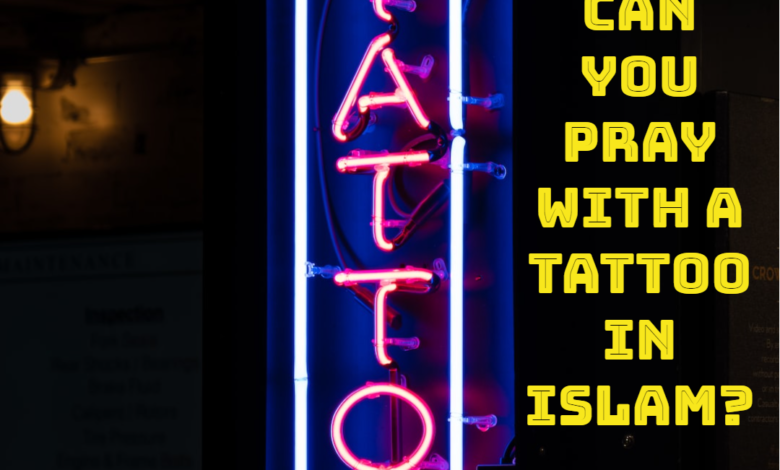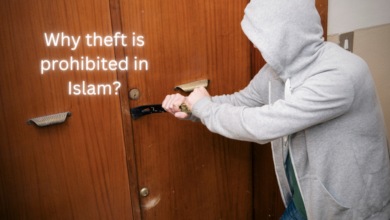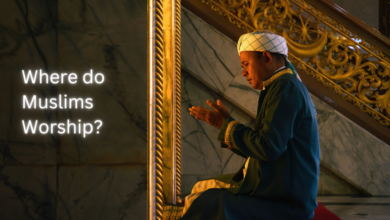can you pray with a tattoo in islam?

Introduction
In Islam, prayer holds significant importance as it serves as a direct connection between the believer and Allah (God). The act of prayer involves physical and spiritual aspects, and adherents often ponder whether certain physical features, such as tattoos, affect the acceptability of their prayers. Tattoos have become increasingly popular in various cultures, including some Muslim communities. However, the question remains: can a Muslim pray with a tattoo in Islam? To explore this topic, we must examine the religious perspectives and scholarly opinions on tattoos in Islam.
The Status of Tattoos in Islamic Tradition
The issue of tattoos in Islam is not explicitly mentioned in the Quran, the holy book of Muslims, nor in the Hadith, the sayings and actions of Prophet Muhammad (peace be upon him). As such, there is no direct prohibition against getting tattoos in Islam. However, Islamic scholars have derived general principles from the Quran and Hadith to guide Muslims in matters that are not explicitly addressed.
The Main Concerns
Alteration of God’s Creation: One of the primary concerns regarding tattoos in Islam is the alteration of Allah’s creation. It is believed that human bodies are created perfectly by Allah, and changing them through tattoos may be seen as disrespectful to His divine design.
Permissibility of Artistic Expression: Some scholars argue that tattoos should be avoided, as they might be associated with non-Islamic practices or pagan rituals from pre-Islamic times.
Purity and Ritual Prerequisites: Before performing prayers, Muslims must ensure their bodies and clothes are in a state of ritual purity (known as “Wudu”). Some scholars question whether tattoos affect the validity of Wudu, as the ink may create a barrier preventing water from reaching the skin during the purification process.
Scholarly Opinions
The Islamic community is diverse, and different scholars hold varying opinions on tattoos in Islam. Some scholars maintain that tattoos are impermissible due to concerns of altering God’s creation or associating with non-Islamic practices. On the other hand, a minority of scholars argue that tattoos are permissible if they do not involve anything explicitly forbidden in Islam, such as offensive imagery or blasphemous symbols.
Prayer with a Tattoo
Considering the lack of a clear consensus on tattoos in Islam, the ruling regarding praying with a tattoo is subject to individual interpretation. Generally, Muslims are encouraged to focus on their spiritual connection with Allah during prayer rather than worrying excessively about external physical factors. As long as the tattoo does not depict anything explicitly prohibited in Islam, such as nudity or blasphemous imagery, praying with a tattoo may be considered acceptable by some scholars.
However, Muslims should strive to maintain a sense of modesty and avoid distractions during prayers. If a tattoo causes discomfort or interferes with concentration during prayer, individuals may choose to conceal the tattoo or take additional measures to ensure a more focused and meaningful worship experience.
Conclusion
In conclusion, the issue of praying with a tattoo in Islam is a matter of personal interpretation and scholarly opinion. While there is no explicit prohibition against tattoos in Islamic texts, concerns about altering God’s creation and associating with non-Islamic practices have led some scholars to discourage the practice. Nonetheless, some scholars permit tattoos that do not violate Islamic principles and advise Muslims to prioritize their spiritual connection with Allah during prayer.
Ultimately, Muslims seeking guidance on this matter should consult with knowledgeable scholars and find an approach that aligns with their religious beliefs and personal convictions. It is essential to remember that Islam emphasizes sincerity and humility in prayer, and external appearances, such as tattoos, should not overshadow the true essence of worship.
FAQs About Praying with Tattoos in Islam
Can Muslims have tattoos?
Islam does not explicitly prohibit getting tattoos, but opinions on the matter differ among scholars. Some consider tattoos to be discouraged or disliked, while others see them as permissible if they don’t contain anything that contradicts Islamic teachings or values.
Can I pray with a visible tattoo?
Generally, having a visible tattoo does not invalidate your prayer. The main conditions for valid prayer in Islam are cleanliness (wudu or ghusl) and modesty in dress. As long as your tattoo does not cover an area that must be washed during ablution (wudu) or is not offensive, it is permissible to pray with it.
Can I pray if my tattoo contains religious symbols or Quranic verses?
Some scholars advise against having religious symbols or Quranic verses as tattoos because of the potential for disrespect or inappropriate treatment. If you have such tattoos, it is advisable to cover them during prayer to show respect and avoid any unintentional disrespect.
Should I cover my tattoo during prayer?
Covering tattoos during prayer is not a strict requirement in Islam, but it is a sign of respect and modesty. If you feel comfortable doing so, covering your tattoo during prayer is a recommended practice for those who have visible tattoos.
Will having a tattoo affect the acceptance of my prayers?
The acceptance of prayers in Islam is ultimately up to Allah, and He is the most Merciful and Forgiving. Having a tattoo itself should not hinder the acceptance of your prayers, as long as your heart is sincere and you perform your prayers with devotion and obedience to Allah.
Can I perform ablution (wudu) over my tattoo?
A tattoo may create a barrier preventing water from reaching the skin during ablution. In such cases, it is advisable to perform wudu as thoroughly as possible, trying to ensure water reaches the areas that need to be washed. If it becomes impossible to properly perform wudu, you may need to consult a knowledgeable scholar for specific guidance.






